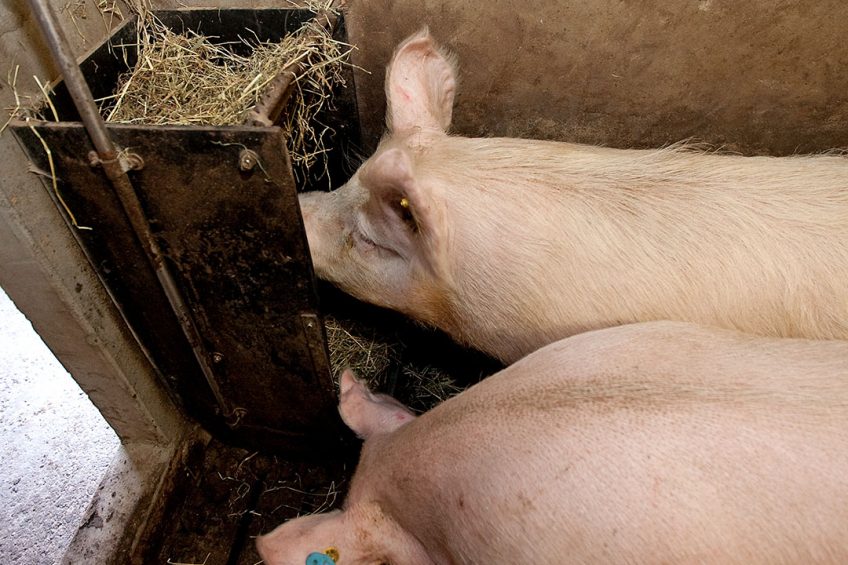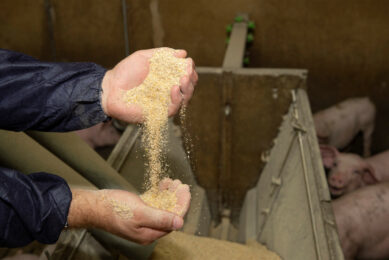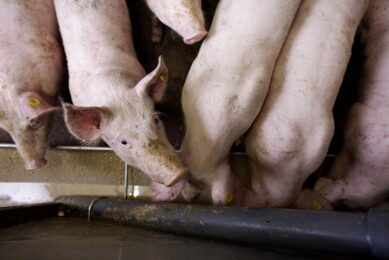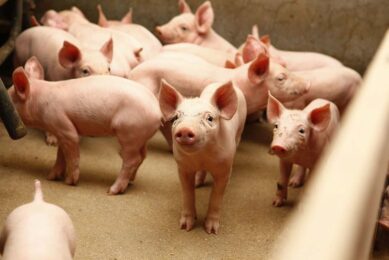US study to focus on enriching pig environment

How can environmental enrichment techniques improve pig welfare, health and productivity? That question is soon key for researchers at the US Department of Agriculture’s Agricultural Research Service (ARS).
The study is one of the 1st of its kind in the USA, according to the Foundation for Food and Agriculture Research (FFAR). The foundation awarded a $ 75,000 grant for this research to the Agricultural Research Service, part of the US Department of Agriculture (USDA). Commercial parties like Nestle and Tyson Foods have provided matching funding for a total $ 150,000 investment.
Food producer Nestle was a driving force behind the research, as the company is a major producer of frozen pizzas, with Tyson supplying toppings like ham, sausage and pepperoni. As part of the Global Coalition for Animal welfare, Nestle is concerned with product sourcing and social responsibility.
Also involved in the research is Dr Keelin O’Driscoll of the Irish agricultural research authority Teagasc.
Better animal welfare means better health and well-being
In a press release at the FFAR website, it is explained that the US livestock industry recognises the need to improve animal welfare including developing better living conditions, which positively effects health and overall well-being. Group housing benefits pigs by improving social stimulation, but it also sometimes results in damaging behaviours like tail-biting and ear-chewing which occur, in part, due to boredom or frustration. Providing pigs with access to toys and devices, referred to as environmental enrichment, may reduce aggressive interactions and improve welfare.
Also interesting: What to do when tail biting occurs?
In the article, Dr Jeremy Marchant-Forde, USDA-ARS animal scientist explained, “There is increasing public attention on how food is produced, and animal welfare is becoming more important. Retailers and consumers expect farm animals to have a certain quality of life and it is essential that livestock industries meet that expectation.”

Testing various environmental enrichment devices in a pig’s life
The article on the FFAR website continued, “Providing enrichment can reduce stress levels, increase performance and productivity and decrease aggressive or abnormal behaviour towards other pigs. Researchers are testing various environmental enrichment devices like chew toys and other devices and measuring their effects on pig welfare at key development stages in the pigs’ life cycle. Pig producers will use the results to develop environmental enrichment management strategies that benefit pig welfare and performance.”
Also interesting: Piglet behaviour better when enrichment used for sows
The research will be assessing the pigs’ welfare by measuring the effect of enrichment materials on behaviour, health and growth rates.
In Europe, minimum standards for pig production have already been successfully implemented. The new US research examines how some European environmental enrichment practices could be applied to the US livestock industry.
Also interesting: Gentle handling does not impact pig performance
Pig research in 2 stages
Dr Marchant-Forde told Pig Progress that the trials are being done in 2 stages, of which the 1st has already been carried out at Purdue University swine unit, USA.
In that set, the enrichment situations were compared to one without enrichment, with trials having been held during lactation, nursery and grow-finish phases. The study looked at Easyfix floor and hanging objects, Ikadan bite-rite and Porciplay/Porcichew objects. The nursery and grow-finish pens had floor toys plus 2 hanging toys for each pen of 6 pigs.
The results of the toys were not compared to each other, he added. “We have all the data and are getting through it. The 2nd part will take some of these enrichments out onto Tyson farms,” adding that the current coronavirus outbreaks are likely delaying these trials.
Dr Marchant-Forde emphasised that mentioning these trade names do not imply recommendation or endorsement by the USDA. The names were solely given for the purpose of providing info.











